2006 Greaves Summer School
Irish Democrat correspondent Ken Keable reports on this year's annual Desmond Greaves Summer School, held in Dublin at the end of August
This year the Desmond Greaves Summer School was more focussed on a single theme than it has sometimes been, and was the better for it.
Held annually in Dublin at the headquarters of the Irish Labour History Society, coinciding with Britain's August bank holiday in the hope of attracting more British participants, it is always worth attending, but this year, with the theme of the 1916 Easter Rising, it was terrific and was very well attended. The audience was very well- informed and often as formidable as the speakers.
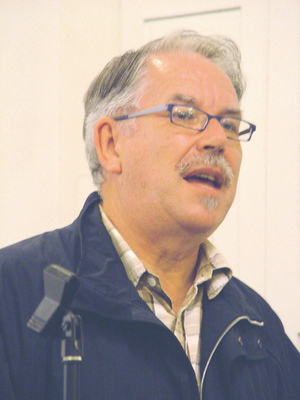
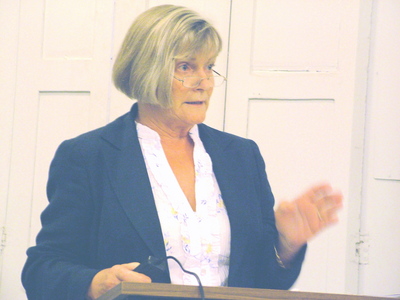
Prominent Irish artist Robert Ballagh, chairing the opening session on 'Representations of 1916', made the point that the response of the Irish establishment to each anniversary of 1916 tells us a lot about the state of affairs at that time. Thus the early Free State leaders were keen to bask in the reflected glory of the Rising but kept quiet about its ideals.
In the early 1970s the government abandoned the commemoration altogether.
Ballagh gave an account of the unofficial 1991 'Reclaim the Spirit of 1916' committee of which he was a member, and the way its supporters were searched, arrested and otherwise harassed by the state for celebrating the 75th anniversary.
Now, on the 90th anniversary, in response to the electoral rise of Sinn Féin, the government was once again celebrating the event but couldn't see the irony of making the celebration a mainly military one when it was precisely the military aspect of republicanism from which they had been for so long trying to distance themselves.
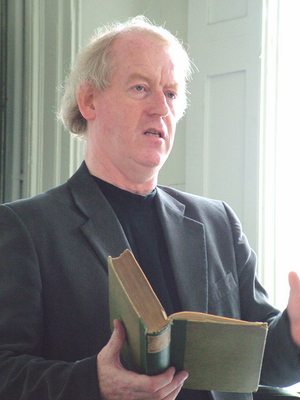
Dr Sheila Breathnach-Lynch, curator of paintings at the National Gallery of Ireland, using a screen projector, gave a rare survey of how the Rising has been depicted in paintings, drawings and monuments over the years.
For this writer, the most surprising lecture was the one given on Saturday by professor Luke Gibbons of the University of Notre Dame, USA, on 'Children of the Nations: Dorothy McArdle, Internationalism and Republicanism'.
Dorothy McArdle is well-known as the author of The Irish Republic, published by the Left Book Club in the 1930s, but Professor Gibbons showed that she had a varied writing career as novelist, playwright and journalist.
She was also a Protestant, a feminist, a teacher of English and a lover of English Literature. She advised De Valera in his remarkable and intense involvement with the League of Nations and in foreign affairs generally.
In the 1930s she founded the Women's Social and Political League (a new political party) and campaigned for aid to Spain. She left Ireland to work for the BBC during World War Two, afterwards touring the devastated countries of Europe, especially Germany, resulting in her book Children of Europe about the condition of children affected by the war.
This was a landmark in holocaust studies and was perhaps her best book. She was, he said, probably the first writer to use the word "trauma" in relation to the effects of war on people. Whilst in Britain she engaged with the British left and may have joined the Communist Party there. All her plays were, sadly, lost.
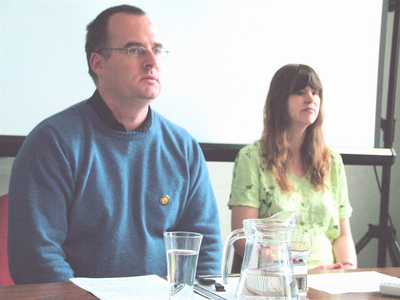
"The 1916 Proclamation in Context", by Dr Ruan O'Donnell did not disappoint. His grasp of the subject is formidable. The talk, and the passionate discussion which followed it, should have been broadcast live. A speaker from the audience made the interesting (and contested) suggestion that Germany was the innocent party in the First World War, and Connolly's attitude to Germany was much debated.
On Sunday Dr Angus Mitchell of the University of Limerick spoke on 'The Effects of 1916 on Empire', with special reference to Roger Casement and to the importance of information control as a weapon of the British Empire.
He said that Ireland had weakened the will and undermined the self-confidence of the Empire. During the Rising the British parliament had held its first-ever secret session of both Houses, and this important event, on which Hansard is silent, is often ignored by historians.
The two talks on Sunday dealt with 'The Social and Political Ideology of 1916'. As an Englishman I still find it surprising (but very welcome) to hear an anti-imperialist lecture by an Irish Benedictine monk who looks after the gardens at Glenstall Abbey. This was Brian P Murphy OSB who gave a fine and deeply-researched account of British propaganda and its influence on Irish revisionist historians; so much so that I bought his book, The Origins and Organisation of British Propaganda in Ireland, 1920 which I equally enjoyed.
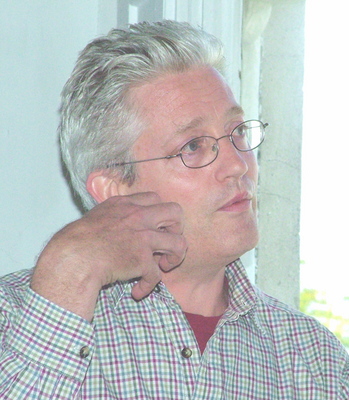
Manus O'Riordan, head of research at Irish trade union SIPTU, criticised the current outbreak, in the Irish establishment, of what he called "Sommery" - a desire to remember the Irish who died for Britain in the 1914-18 war, placing them on a par, at least, with those who died for the Rising, and to accept the British version of the war.
This version, he said, "telescoped" the two world wars, so that the first was presented as essentially the same as the second, with Germany as the villain in both. He defended Connolly's supportive attitude to Germany and praised his unique stand against anti-semitism. Disagreeing with Lenin's view that Ireland rose too early, O'Riordan said that the timing was perfect.
The Greaves Summer School committee is it planning to produce a publication on the theme of this year's Summer School.(expected publication date Autumn/winter 2007)
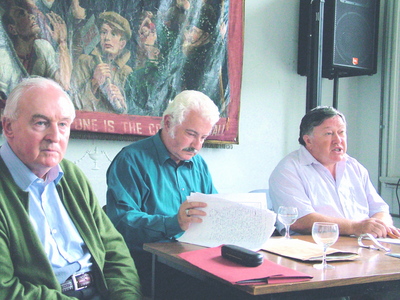
Connolly Association, c/o RMT, Unity House, 39 Chalton Street, London, NW1 1JD
Copyright © 2006 Ken Keable

